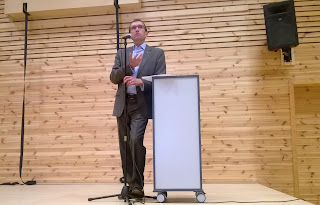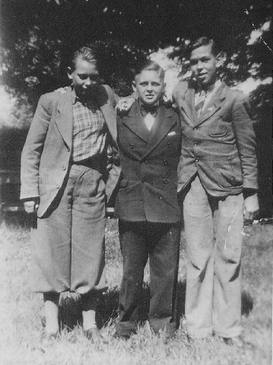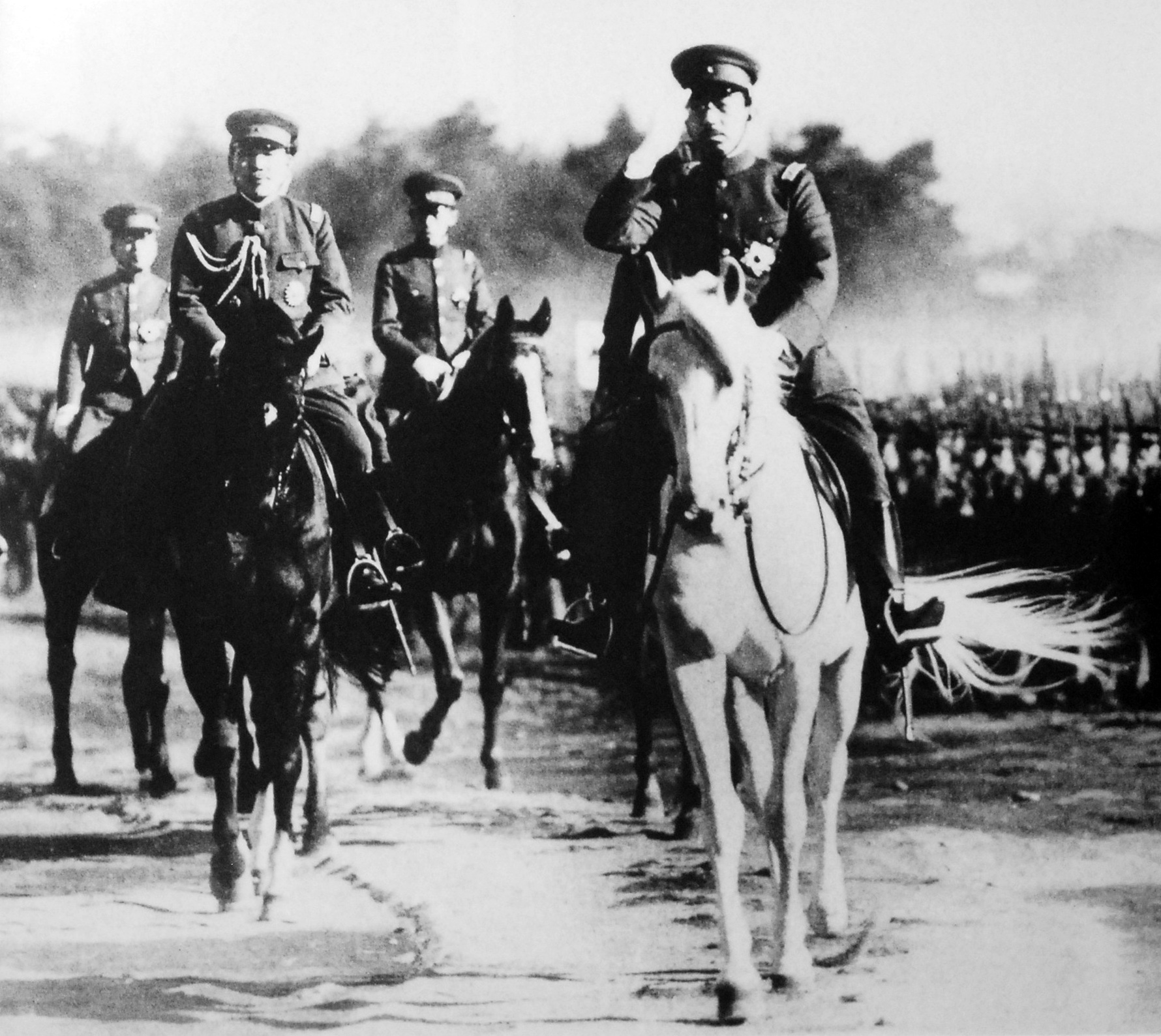Last week
we watched the movie Grand
Torino. Starring, and directed by Clint Eastwood, the movie takes place in
Detroit- where Walt Kowalski(Eastwood), a old man and Korean War veteran, who
is angry at the world lives. His new neighbours, a Hmong family, makes his life
take a sudden turn.
For more info on the movie- look here:
http://en.wikipedia.org/wiki/Gran_Torino
My assignment is to
answer five questions related to the movie, so there will be lots of spoilers
ahead- be warned!
• How would you
describe the relationship between Walt and the priest? How does this
relationship change during the movie?
Our
first meeting with the priest is at the funeral for
Walt's wife. Walt clearly disapproves of the priest's age- and later he states
that he is just "an overeducated
27-year-old virgin who likes to hold the hands of superstitious old ladies and
promise them everlasting life." However, the priest apparently promised
Walt's wife to make Walt come to confession- a promise he would not break.
But Walt's view on
the priest, and the church itself, is not very positive. However, the priest
keeps pushing Walt, and eventually they have a talk about life and death- a
subject Walt has much experience with. As the time goes by, Walt accepts the
priest as a person, and although Walt may not accept the church, he seems to
find peace when he goes to confession at the end.
• Walt tells the
priest that what haunts men is not what they are ordered to do, but what they
do when not ordered to do
something. What does
he mean by this?
Walt served in the
Korean War, a war which is often referred to as "the forgotten war".
Like any other war, the Korean war was terrible- especially for the civilians,
and like in any war- soldiers did on both sides did things they should not have
done. In war your true face comes forth.
Will you kill a civilian if ordered to? Will you kill a civilian if not ordered
to? In every war throughout history, the answer unfortunately turns out to be
yes. And it don't have to be the question on killing civilians either, it could
be to burn down a house, or maybe kill a enemy soldier you didn't have to kill.
Of course, some people do these terrible things simply because they are plain
evil persons- like the SS death squadrons, such as those in SS Division
Totenkopf, during ww2. The SS is known for their brutality towards civilians
during the war, and most of the divisions were put together by volunteers.
Thousands of young men, including
Norwegians, took part in massacres, well knowing it was massacres- and not
necessarily with orders to do so. Though ww2 may be a special case cause of the
organizing and the scale of it, similar
things happens in almost every armed conflict- with or without orders. In the
Korean war, no one had any goal to exterminate a whole "rase", like
in ww2- but it still happened civilians were killed on purpose. Civilians could
be killed in anger, or they could be killed in the heat of a fight. In war
soldiers tends to get more brutal, and maybe develop a hate towards the ones
they are fighting- especially if you are at the front for a long time, your
psych will suffer- and you end up doing something terrible, perhaps together
with your fellow soldiers, and without orders. The killing of surrendered
enemies was probably the most common case.
When at the front, Walt probably saw a lot of this. In the movie he says,
when describing Korea and death, that you'll never forget killing a seventeen
year old with a bayonet- and he clearly regrets this action, even though he
probably had to do it. He probably saw much worse things, and he because of
what he tells the priest, we can assume that he took part in things he was not
ordered to, and that were not necessary
.
• After the attack,
Walt gets a haircut and shave, gets a new suit and goes to confession. What is
the significance of these actions?
By doing these
things, he marks that he is at the last stage of his life. He wants to look
good, and he want god's forgiveness before doing what he have to do. He want to
go down with style, and he want's it to be meaningful.
By cutting his hair and shaving, he does something common- but still something
he will do for the last time. His new suit is tailored, and he says he's never
had a special made suit before. It could be compared to how we treat our dead,
before we, for example, cremate them. Humans have a need to "go down with
style", and if we can decide when to die, we'll buy the suit before- and
not after.
• What does respect
mean to Walt? What does respect mean to you?
Walt is clearly a
man of the old guard- he likes respect, and he think you should earn it.
However, he does not seek respect for being a veteran- but for being who he is,
and I agree with that. Of course, there is different kinds of respect. I could
respect someone for something they believe, or something they have done- but
not necessarily for everything about them. Like anything else, it's
complicated.
• Walt calls his son
after going to the doctor but doesn’t discuss the visit with him. Why do you
think that he didn’t share the news
about his illness?
Under the circumstances would you have acted differently? Why or why not? Have
you ever had big news that
you changed your
mind about sharing?
He probably didn't
want to tell them, because he had to do what he had to do. Nothing could get in
his way, and his mind was made up that this was the end for him. However, he
most likely felt that he had to talk to his son for the last time. They did not
get along very well, but for Walt the last phone call was probably much like
his last confession. He probably also felt that it wouldn't do any good
telling. He was going to die.
I have no idea what
I would have done- but I like to think that I, if in that exact situation,
would have done the same. It would not have done any good telling, and for his
son to hear him in a nice way over the phone(usually they'd argue), was
probably the best way ending it.
Yes, I've had news
and changed my mind, and since I changed my mind, I am certainly not going to
share it here!










